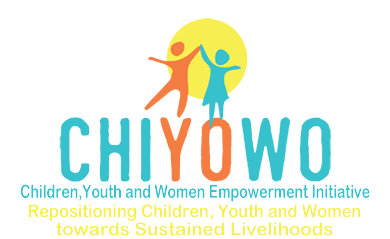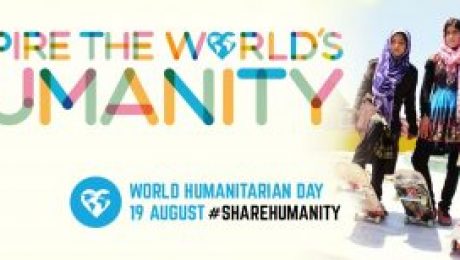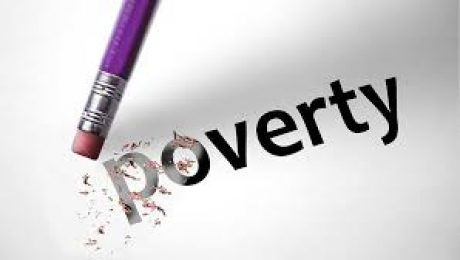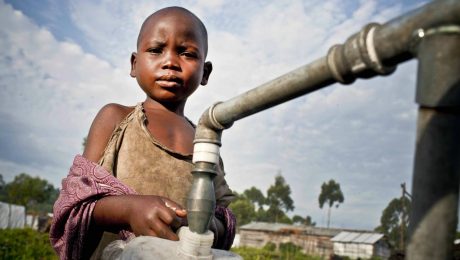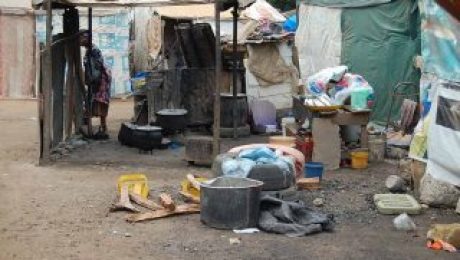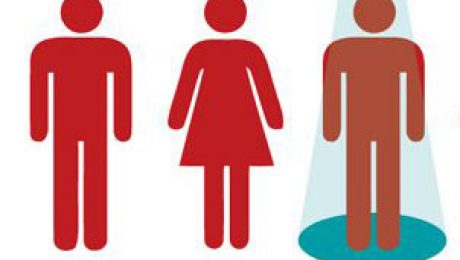World Humanitarian Day on August 19 Celebrates “One Humanity”
World Humanitarian Day on August 19 Celebrates “One Humanity”
Tokunbo Ifaturoti
On August 19, 2016 the international day observances shift to focus on the humanitarian that resides in us all. Under the theme “One Humanity”. Events on that day will pay direct homage to humanitarian aid workers and the over 130 million persons worldwide who depend on their selfless assistance.
It is vital that we acknowledge these efforts and support all plans to increase the reach and effectiveness of humanitarian aid workers. What should also be at the forefront of our thoughts is how we can contribute to make a difference. Being a humanitarian is defined as “having concern for or helping to improve the welfare and happiness of people”. That concern should drive us to
- learn more about the hardships and struggles of people displaced by war and strife
- use all means available to us to spread awareness of their plight
- encourage and instigate change how, when and wherever we can
Another way in which we can allow the humanitarian in us to shine through, is to give our support in time, skills and financial assistance to charities and organizations that are working to improve the conditions of those in need. These entities work to empower the disadvantage, enabling them to make positive changes in their personal lives and in their societies.
When each individual takes these actions in the spirit of humanitarianism then we are affecting changes to the happiness, health and safety of our fellow human beings. We are acting as “One Humanity”.
“In a world that is ever more digitally connected, each of us has the power and responsibility to inspire our fellow human beings to act to help others and create a more humane world.” — UN Secretary-General, Ban Ki-moon
- Published in BLOG
Poverty Reduction – It’s Not All About Money
Poverty Reduction – It’s Not All About Money
Tokunbo Ifaturoti
Introduction
The United Nations’ Transforming our world: the 2030 Agenda for Sustainable Development, otherwise known as the Sustainable Development Goals or SDGs have as its first goal “No poverty” with an attendant target to “end poverty in all its forms everywhere”. The essential idea in that target is poverty comes in many forms.
Defining Poverty
Investopedia offers the following definition: “Poverty is a state or condition in which a person or community lacks the financial resources and essentials to enjoy a minimum standard of life and well-being that’s considered acceptable in society.” This powerful definition brings a few important points into focus.
- Poverty affects individuals and groups of individuals.
- Poverty is about more than a lack of money (but what are the “essentials” to which the definition alludes?)
- Use of the term “enjoy’ in relation to having at least what is considered the minimum standard of living suggests that where there is poverty, instead of “joy” we will find the opposite – “misery”.
- Poverty is unacceptable.
The Essentials
Money or “financial resources” aside, what other lacking factors should we consider when discussing poverty? According to the United Nations, poverty also involves several social, political and cultural aspects. It encompasses
- a lack of “access to health care and education”
- infringement upon the “freedom of thought, expression and association”
- prevention of “the right to maintain one’s cultural identity and be involved in a community’s cultural life”
The World Bank highlights that over three-quarters (77.8%) of persons below the poverty line live in South Asia and Sub-Saharan Africa. The Bank goes on to list the “essentials” that these persons are having difficulty accessing as “schools, healthcare, electricity, safe water and other critical services”.
Reducing Poverty In All Its Forms: Self-Reliance
In order to eradicate poverty in all its forms, the world’s poor must be empowered through self-reliance to rise above the threshold of financial poverty. This can be done by implementing entrepreneurship initiatives that allow individuals and communities to earn an acceptable income out of the skills and resources they already have.
All persons within poverty stricken communities must be able to freely access educational facilities which provide even the most fundamental levels of literacy and numeracy. Where there are no such institutions, these need to be built and persons trained to work in them. Ideally, over time, these persons will be drawn from within the community – an example of community self-reliance.
Provision of clean water
Self-reliance in accessing clean water is also vitally important. There are many charities that focus on bringing in drinking water to disadvantaged communities. While this assistance is absolutely needed in the short-term, it is not a solution for the long-term. Communities need to be exposed to practical innovations in harvesting fresh water, such as by the drilling and maintenance of wells.
Conclusion
Attainment of the SDGs hinges on finding ways to address the issues that lead to poverty in the first place and then later pose as obstacles to persons retaining their new found status above the poverty line. Providing assistance now that is geared to helping the poor eventually taking on the responsibility of improving their own well-being is the key to eradication of poverty around the globe.
- Published in ARTICLES
International Day For The Remembrance Of The Slave Trade And Its Abolition 2016
Make It A Day To Remember
International Day For The Remembrance Of The Slave Trade And Its Abolition 2016
Tokunbo Ifaturoti
August 23 is the day set aside by the United Nations for us to focus on the lasting effects of the slave trade, the struggles that led to its abolition and what these mean to us as we try to improve conditions for all around the globe. Irina Bokova, UNESCO Director-General, puts it all into perspective when she states “All of humanity is part of this story, in its transgressions and good deeds.”
The establishment of the International Day for the Remembrance of the Slave Trade and its Abolition comes out of UNESCO’s The Slave Route Project. That initiative is also responsible for the setting up of the International Decade for People of African Descent (2015-2024).
Human nature is laid bare for open examination as we dissect the horrendous trade and the unstoppable movement to fight against it and bring about its downfall. That fight was not swift, but a centuries-long struggle running from the abolition of slavery in a handful of American states in the late eighteenth century to the 2003 banning of slavery in Niger.
Within Nigeria, many internally displaced persons (IDPs) have fled their homes out of fear of modern day slavery at the hands of insurgents. Also, Badagry in Nigeria’s Lagos State was a primary town for the export of slaves to the Americas. Whether past or present, slavery and its nuances have left an indelible imprint that tempers how societies and sectors within societies relate to each other.
It is important that the achievements of groups which were (or still are) physically, mentally and emotionally oppressed be highlighted as a way to restore a sense dignity and equality to them. In doing so we will be guaranteeing that they are able to freely continue to make worthwhile contributions to the growth of whichever countries they are in. In the case of Nigeria’s IDPs, it is worthwhile to focus on their strengths and empower them to become independent as a way to maintain their freedom.
Let us not forget the scourge of slavery but also, most importantly, let us collectively decide to focus on the powerful human traits that have led to its abolition. These are the traits that will drive the development of societies that respect and nurture all their citizens regardless their ethnic background, gender, age, or socio-economic status.
- Published in BLOG
International Day Against Nuclear Tests – August 29, 2016
International Day Against Nuclear Tests – August 29, 2016
Tokunbo Ifaturoti
The International Day Against Nuclear Tests has been observed since 2010 with the hope of drawing attention to the need to finally bring the Comprehensive Nuclear-Test-Ban Treaty (CTBT) into force.
The first successful test of a nuclear bomb, code named Trinity, was carried out at Alamogordo, New Mexico on July 16, 1945. Most of the world’s population had no inkling of its occurrence, but that event set off a chain reaction of events. Those events have included close to 2000 nuclear tests, growing awareness about their starkly negative effects and the adoption of the International Day Against Nuclear Tests.
The lingering and as yet not fully understood impact of exposure to nuclear radiation and contaminants have provided ample reason for a feeling of wariness about the negative consequences of nuclear tests. The world saw the utter devastation that occurred when the United States detonated two bombs against Japan. Over the ensuing decades, the lasting repercussions of the explosions on the health of people in the affected areas have been brought to our attention time and time again.
There have been several nuclear plant incidents, as well, of which the Chernobyl disaster in the Ukraine and the recent tsunami induced nuclear plant accident in Fukushima, Japan stand out for most people. These coupled with a push by a growing number of nations to develop nuclear weapons as a means of offense and defence, have fuelled a call for the need to put an end to nuclear testing.
In the days around August 29, the member states of the United Nations will highlight the relevance and necessity of the International Day Against Nuclear Tests by hosting various activities aimed at disseminating information about it. Organizations such as the International Physicians for the Prevention of Nuclear War (IPPNW), Greenpeace International and Global Zero, have also joined in the call for greater awareness in the push toward a world without nuclear weapons.
As UN Secretary-General Ban Ki-moon points out, disarmament is important “because the resources it will free up could be used for other global challenges.” These challenges include those faced by poverty and strife stricken regions around the globe. Within these areas many people barely survive below the poverty line and are in need of resources to help jumpstart their journey to being able to provide for themselves and their families.
“On this Day, I call on all countries and peoples to work for the CTBT’s entry into force as soon as possible so that we may advance toward a nuclear-weapon-free world.” — UN Secretary-General, Ban Ki-moon
- Published in ARTICLES
Helping Boys Grow Into Well-Rounded Men Despite Poverty
Helping Boys Grow Into Well-Rounded Men Despite Poverty
Tokunbo Ifaturoti
Introduction
A group that often goes dangerously unnoticed within much of Nigeria’s patriarchal society is that of young boys living in poverty. The boys face many of the same struggles as everyone else around them but are often ignored with the thought that they are “tough”, “naturally able to cope” and already living with the benefit of being “preferred” over their female counterparts.
These boys are often left on their own to decipher what it means to be a mature and responsible man through the haze of poverty. Few solutions are put in place to ensure that they grow into well-rounded men who are ready to take on the responsibilities of adulthood and contribute positively to the upliftment of their families and communities.
Lessons From Sports
One proven way to address this issue is through sports. Sports can play an active role in the transformation of boys to men. Additionally, to a great extent, it requires less financial input than many other initiatives. Football, often considered Nigeria’s national sport, is a prime example of how sports can make a change.
All that it takes are a ball, an open field and a coach prepared to work with the limited resources the community has. Willing and capable coaches and mentors play an indispensible role in and are a major benefit to many impoverished communities. The coaches guide boys in these communities in the display of acceptable and respectful behaviour while passing on valuable life-lessons.
Social lessons and skills learnt through playing football include (but are certainly not limited to) the following:
- Handling Conflicts – When conflicts arise, boys on the field take the matter to whoever is in charge, be it the referee, coach or team captain. Football teaches them to solve their problems without violence. They respectfully plead their case and accept the decision of the authority figure.
- Self-confidence – A sense of pride comes from contributing to the success (or good performance) of a team. Boys feel a growing sense of self-worth in that their input made a difference in the team’s overall accomplishments. This confidence in their abilities makes it easier for them to seek out new prospects off the field and to take advantage of opportunities as they arise.
- Perseverance – Defeat and set backs are part and parcel of the game, so too are analysis of failure and strategizing for making another attempt. Boys learn that life is not all about winning but about learning from our mistakes and having the diligence to keep tackling the challenges life brings.
- Individual Contribution – By playing football, boys learn that each member of the team plays a role in its overall performance. Scoring a goal is as important, as setting one up or foiling an attack from the opposite side. They transfer this lesson to their families where they begin to see the value of both males and females, young and old to the advancement of family.
Conclusion
These lessons are profound and are taught in an informal and supportive manner. The beauty of it all, is that the things the boys learn are naturally and subtly transferred into the homes and communities from which they come. This makes football and sports in general, a vital tool not just to distract boys from their condition of poverty, but to instill positive traits needed in adulthood.
.
- Published in ARTICLES
Giving Internally Displaced Women Hope
Giving Internally Displaced Women Hope
Tokunbo Ifaturoti
There are approximately three million internally displaced persons (IDP) in Nigeria who have been displaced by conflict. The number has been rising steadily in recent months and is accompanied by increased calls for the protection of the most vulnerable among the displaced, namely women and children.
The report Improving the Protection of Internally Displaced Women: Assessment of Progress and Challenges by Chaloka Beyani, United Nations Special Rapporteur on the Human Rights of Internally Displaced Persons reminds us that women make up just about half of the persons displaced within their own countries. It also highlights the list of special rights the United Nations observes for women who have been internally displaced. These rights include:
- Non-discrimination and the right of expectant mothers, mothers of young children, and female heads of household to protection and assistance that “takes into account their special needs”
- Protection from sexual and gender-based violence (SGBV) and other forms of violence and exploitation
- The right to access all necessary documents, education and training
- The need for internally displaced women to actively participate in decision-making at all stages of displacement
Within Nigeria, several individuals and organizations, including local and international charities, have taken up the challenge of ensuring these rights are respected. Many have gone a step further by seeking to empower internally displaced women. These efforts range from sewing machines donated by Princess Ozolua and the Body Enhancement Foundation, to the provision of psychosocial support by the government-established Nigeria Foundation for the Support of Victims of Terrorism (Victims Support Fund), and the donation of beads and ornaments to encourage the development of sustainable livelihoods amongst women in IDP camps in Nigeria by ChiYoWo (Children, Youth and Women Empowerment Initiative).
It is unlikely that all IDPs will ever be able to return to their original homes and villages. The outpouring of concern and assistance, however, raises hopes for women in Nigerian IDP camps. Their rights are of international interest and they are being given some of the tools, power and support they need to successfully restart life for themselves and their families outside of the camps.
- Published in BLOG
Apprenticeship – The Role of Local Businesses In Youth Development
Apprenticeship – The Role of Local Businesses In Youth Development
Tokunbo Ifaturoti
There have been a plethora of studies conducted on the connection between poverty and unemployment. Similarly, studies have pointed to skills training and career building through apprenticeship as a way to help alleviate poverty.
The following can be achieved through apprenticeship:
- Businesses can give young people opportunities to gain experience of the culture that exists in the world of work. The youth learn valuable lessons in work ethic, including: effective time management; working as a part of a team to achieve set objectives; and how to handle interpersonal relationships in a professional manner.
- The experience of apprenticeship can teach youth appropriate and usable skills to leverage opportunities elsewhere, once the apprenticeship period has ended. By becoming more marketable, they are able to seek out jobs in sectors that were previously closed to them.
- Youth carry with them a dynamic energy that makes them eager to learn and take on challenges. They come to the workplace with fresh ideas, enthusiasm to make a contribution and a unique perspective of the evolving marketplace. Businesses can tap into this dynamism to make apprenticeship a win-win situation for the company and the young people involved.
- Businesses can provide mentorship through current employees who can stand as strong role models for the youth joining the workforce. The assigned mentor can assist with career coaching as well as with personal development. Often times, such examples are lacking in the communities from which these young people come.
- Companies derive benefit from the apprenticeship programme as it ensures that there is a set of trained individuals to fill future vacancies. These persons would already possess the requisite skills and be familiar with the organization’s structure and culture.
In summary, businesses in and around disadvantaged communities must begin to embrace their role in helping to lift these communities out of poverty. Apprenticeship is one way in which they can effect change.
- Published in BLOG
